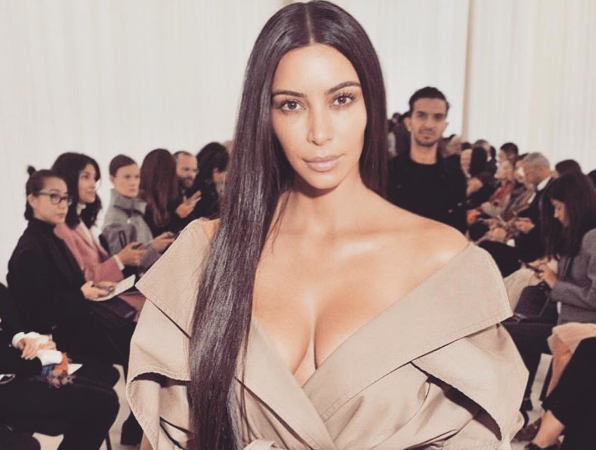Female Trouble
There’s no safe way to be a woman in public

It hasn’t been a good couple of days for the world’s high-profile women. Yesterday, news broke that Kim Kardashian had been held at gunpoint—bound, and gagged in a Paris apartment while $10 million of her property was stolen. And over the weekend, The New York Review of Books purported to reveal the identity of the author who writes as Elena Ferrante, whose bestselling Neapolitan novels detailed a lifetime of their protagonists’ struggles as women. The worlds of professional celebrity and literary success don’t have a ton of overlap, so these two events aren’t particularly linked (I can say with 99% certainty that Kim has never heard of Elena, and if Elena has heard of Kim, I assume it’s in an “Oh yes, her?” sense and not a “Did you watch this week’s episode?” sense). And yet, seeing headlines from both stories flashing back-to-back through my feed, it occurred to me: There is no safe way, currently, to be both female and public.
There is no safe way, currently, to be both female and public.
On the one hand we have Ferrante, someone who chose to bear her success anonymously, divorced from the particulars of her personal life. And on the other hand there’s Kim, someone who has chosen to bear her success personally, with her audience feeling as though they have access to everything she does. Both of them have been punished for putting themselves out there. There is no right way to be female and speak up. Ideally, it seems, women would not be saying anything of their own at all.
Elena Ferrante didn’t do anything new by publishing her novels under a pen name. The history of women’s writing is a history of women publishing in obscurity—the Brontë sisters published as Currer, Acton, and Ellis Bell; Louisa May Alcott published a lot of her non-Little Women works as A.M. Barnard; and in the twentieth century, Joan Cooper published seven short story collections, five novels, and seventeen plays as J. California Cooper*. Even J.K. goddamn Rowling writes books under the name Robert Galbraith now, after her success. Part of writing and being a woman is being reminded, over and over again, that you are a threat. What will your family think? Potential husbands? Better be careful how much truth you tell! The traditional way to neutralize that tension is to assimilate and put everyone at ease by letting them think you’re someone else.
Often these pseudonyms are male or gender neutral, but Ferrante was a literary badboy—she chose a woman’s name. She wanted to protect her own identity while still letting readers know the call was coming from inside the house. A woman had made a book, everyone, and society was about to get doxxed.

Kim Kardashian’s brand is the opposite of this in a lot of ways—she’s compulsively open with her audience. Nothing is off limits. Here she is sobbing into her webcam on a family ski trip, here she is eating a chicken salad and mango iced tea from her favorite restaurant in Calabasas. Are there parts of her life we’re not privy to? Of course. But she never lets us feel that way. She never lets us see the seams between what she’s projecting and the woman who files her taxes by the same name. Where Ferrante’s work dodges identity politics so her books can speak for themselves, Kim uses them as a tool. Oh, they’ll write me up every single time my nipples are visible? Great. All I have to do is wear a dress and I’ll be on every tabloid front page? Done.
Lest we forget how Kim became famous in the first place — someone sold a sex tape of her without her consent or permission. This is not someone who had plans to be a celebrity. This is not someone who knocked on the industry’s door with a manuscript in hand. This is a woman who has been singled out, and publicly shamed for having sex, taking that trauma and turning it into an empire. The culture won’t let her hide from what they’ve decided her identity is—someone who is sexual—so she’s using it as a tool. Every time a commenter hisses and spits and calls her an attention whore, she wins. She’s made a career out of showing us where the real monsters are hiding.
The culture won’t let her hide from what they’ve decided her identity is — someone who is sexual — so she’s using it as a tool.
The lesson we learn from both of the violations these women endured is simple and sad: in 2016, you can act any way within the spectrum of respectability politics and still not get left alone. If you are female, and you are talking, you are at risk. Someone will want to knock you down a peg, and because we’re still not as protected as people think we are, they will sometimes succeed. Either you’re a beacon of everything threatening and volatile, or you’re a snake hiding in the grass—no matter what, they will threaten your privacy and your life to remind you.
If you are female, and you are talking, you are at risk.
The best course of action, as far as I can tell, is to keep doing what Kim and Ferrante taught us: speak up. Get pissed. Be vocal. In public, in private, however you feel comfortable. And if anyone in your feed gets riled up and hateful at you for talking, just remember that they’re scared. And frankly, they should be. Look at their behavior.
____
*In 2000, when the Washington Post asked what the initial J. in her pen name stood for, she said,“My mother gave it to me, so it’s mine. I have to keep something for myself. I write books. My books are yours. And the rest is mine.”
